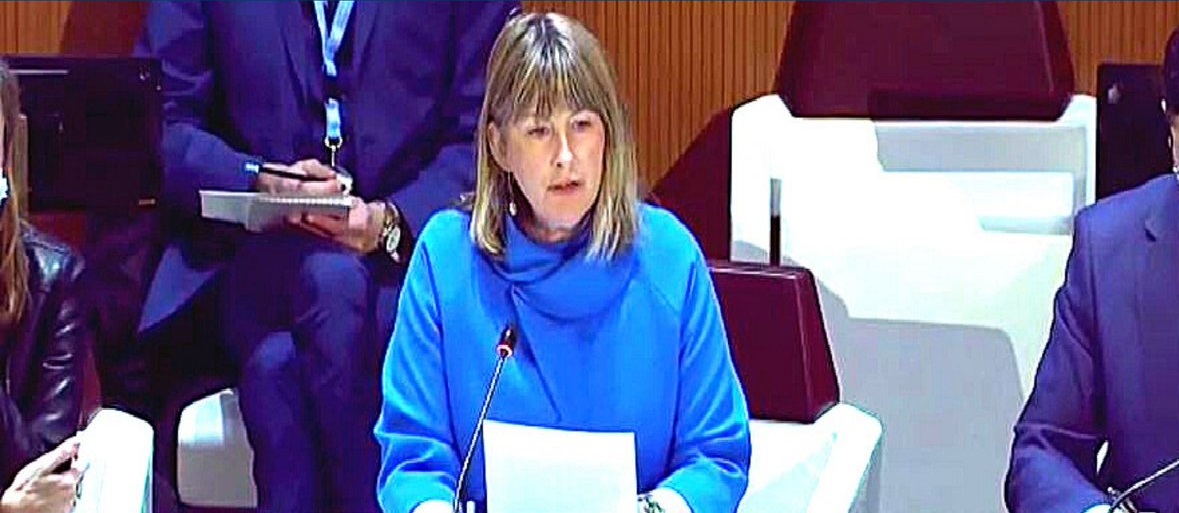
The Special Rapporteur on the promotion and protection of human rights and fundamental freedoms in the context of combating terrorism emphasized that the Kingdom of Saudi Arabia is among the countries that continue to violate human rights and practice secret detention under the pretext of combating terrorism.
The Special Rapporteur, Fionnwala Ni Olin, published a report within the work of the 49th session of the Human Rights Council on global practices related to secret detention, to follow up on the recommendations of a study that was presented in 2010 on combating terrorism and human rights.
The report sheds light on the abject failure to implement the recommendations of that study and its tragic and profound consequences for individuals who have been systematically subjected to torture, cross-border rendition, arbitrary detention and deprivation of their most basic rights. The report indicated that more than two decades of impunity followed the events that led to the study. The Rapporteur also emphasized that the failure to implement the 2010 recommendations made by the Special Procedures has enabled and facilitated ongoing human rights violations in the name of combating terrorism around the world.
The report indicated that new methods of cross-border transportation were developed at this time, to circumvent the required legal protection measures including non-refoulement; Mass detention without due process by certain countries has been normalized as an exception to trial proceedings involving terrorism charges.
The report documented the use of secret detention by Saudi Arabia, and other countries, and justified this in the discourse of combating terrorism at the national and regional levels, and indicated that the special procedures and special rapporteurs are following up with the Saudi government many of these issues, which it justifies under the pretext of national security.
The report documented ten cases of individuals in Saudi Arabia who were secretly arrested under the pretext of terrorism, including Saud Al-Hashemi, Musa Al-Qarni and others. It also stopped the cases of individuals of Saudi nationality who were subjected to violations in other countries under the pretext of combating terrorism.
The report concluded by emphasizing the inadmissibility of secret detention, rendition, incommunicado detention, disappearance, arbitrary detention and related practices of torture and cruel, inhuman and degrading treatment under international law.
The Special Rapporteur made several recommendations to states, including:
- Enact clear and explicit domestic legislation prohibiting the practice of secret and other forms of unofficial detention;
- Prosecute all individuals who have participated in the secret detention of persons and any unlawful acts committed during such detention, including their superiors if they order, encourage or consent to secret detentions
- Failure to cooperate with other countries to engage in secret detention or exceptional rendition
- Seeking to protect citizens who are subjected to secret detention in other countries through consular assistance
The European Saudi Organization for Human Rights indicates that Saudi Arabia uses the pretext of combating terrorism for widespread violations against individuals, including male and female activists, up to the issuance of arbitrary sentences, including the death penalty. The United Nations reports have also confirmed the flaws in the anti-terrorism law approved by the Saudi government and its wide-ranging uses, and the violations that affect individuals under trial, including arbitrary detention, enforced disappearance, torture, and denial of the right to self-defense, among others.
The organization notes that the Saudi government uses the accusation of terrorism to criminalize peaceful practices, and recently, on March 12, 2022, it executed 81 people in mass massacre. Although many of those executed did not face more serious charges, Saudi Arabia accused all of them of terrorism.
